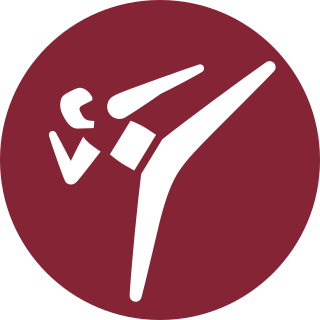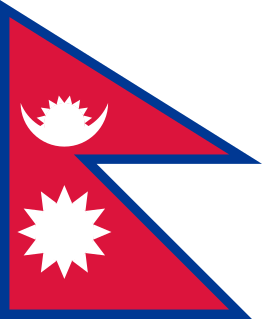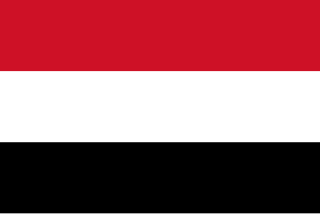Related Research Articles

The Olympic Charter is a set of rules and guidelines for the organisation of the Olympic Games, and for governing the Olympic movement. Its last revision was on the 17th of July 2020 during the 136th IOC Session, held by video conference. Adopted by the International Olympic Committee (IOC), it is the codification of the fundamental principles, rules and by-laws. French and English are the official languages of the Olympic Charter.
South Africa did not compete at Olympic Games from 1964 to 1988, as a part of the sporting boycott of South Africa during the apartheid era. The South African National Olympic Committee (NOC) was expelled from the International Olympic Committee (IOC) in 1970. In 1991, as part of the transition to multiracial equality, a new NOC was formed and admitted to the IOC, and the country competed at the 1992 Summer Olympics held in Barcelona.

Judo at the 2020 Summer Olympics in Tokyo featured around 393 judoka competing in 15 events, seven each for both men and women as well as a new mixed team event. The 2020 Summer Olympics was postponed in March 2020 and planned for 2021 as a result of the COVID-19 pandemic.

Taekwondo at the 2020 Summer Olympics in Tokyo featured 128 taekwondo fighters competing in eight weight categories; four for men, and four for women. The 2020 Olympics was postponed to 2021 due to the COVID-19 pandemic.

International Olympic Committee Athletes’ Commission is a majority elected body that serves as a link between athletes and the IOC. The mission of the IOC AC is to ensure that athletes’ viewpoint remains at the heart of the Olympic Movement decisions, representing future, current and recently retired Olympic athletes. The IOC AC aims to provide athletes with a platform to share their voice and experiences, and be part of change and decisions shaping the future of sport.

Kosovo participated at the 2016 Summer Olympics in Rio de Janeiro, Brazil from 5 to 21 August 2016. It was represented by the Olympic Committee of Kosovo (KOK/OKK) with a delegation of eight people, including three men and five women. Most of them were awarded places in their respective sporting events through wild card entries and Tripartite Commission invitations. Two Kosovar athletes, on the other hand, qualified directly for the Olympics on merit: judoka Nora Gjakova and Majlinda Kelmendi, the lone returning Olympian on the team after representing Albania four years earlier in London. The world's top-ranked judoka in her weight category and the frontrunner for the country's first Olympic medal, Kelmendi was selected to become Kosovo's flag bearer in the opening ceremony.

Kosovo participated at the 2018 Summer Youth Olympics in Buenos Aires, Argentina from 6 October to 18 October 2018. This was the country's Youth Olympic Games debut.
There are 172 quota places available for qualification for badminton at the 2020 Summer Olympics. The Olympic qualification period takes place between April 29, 2019 and April 25, 2021, and the Badminton World Federation rankings list, scheduled to publish on June 15, 2021, will be used to allocate spots. Nations can enter a maximum of two players each in the men's and women's singles if both are ranked in the world's top 16; otherwise, one quota place until the roster of thirty-eight players has been completed. Similar regulations also apply to the players competing in the doubles, as the NOCs can enter a maximum of two pairs if both are ranked in the top eight, while the remaining NOCs are entitled to one until the quota of 16 highest-ranked pairs is filled.
This article details the qualifying phase for karate at the 2020 Summer Olympics. 80 quota places for the Games are entitled to the karatekas coming from their respective NOCs, based on the results at designated tournaments supervised by World Karate Federation. Each NOC could enter a maximum of eight karatekas. Host nation Japan has reserved a spot in each of all 8 events, while four are made available to NOCs through a Tripartite Commission Invitation.
This article details the qualifying phase for sailing at the 2020 Summer Olympics. 350 quota places for the Games are entitled to the sailors coming from their respective NOCs, based on the results at designated regattas supervised by World Sailing. Host nation Japan has been guaranteed one quota place in each of the ten classes.
There are 40 quota spots available for sport climbing at the 2020 Summer Olympics. Each National Olympic Committee (NOC) can obtain a maximum of 2 spots in each event. Each event will have 20 competitors qualify: 18 from qualifying, 1 from the host (Japan), and 1 from Tripartite Commission invitations.
This article details the qualifying phase for triathlon at the 2020 Summer Olympics. The competition at these Games will comprise a total of 110 athletes coming from their respective NOCs; each has been allowed to enter a maximum of three. All athletes must undergo a qualifying process to earn a spot for the Games through the Continental Qualification Events, the World Qualification Event, and then the Olympic Qualification List that began on May 11, 2018 and then concludes two years later on the same date.
This article details the qualifying phase for weightlifting at the 2020 Summer Olympics. The competition at these Games includes 196 athletes. Each competing nation is allowed to enter a maximum of 8 competitors, 4 men and 4 women. The IWF released its qualification list on 28 June 2021.
This article details the canoeing at the 2020 Summer Olympics qualifying phase. The 2020 Olympics was postponed to 2021 due to the COVID-19 pandemic. Similar to 2012 and 2016 format, a qualification system has been set up for both slalom and sprint canoeing at these games. The quotas have already been set for each event by the International Canoe Federation in October 2018.

Albania (ALB) is currently competing at the 2020 Summer Olympics in Tokyo, Japan, represented by the Albanian National Olympic Committee (KOKSH). To this point, the nation had participated in the Summer Olympic Games on eight occasions since its first appearance in 1972. A total of nine athletes, six men and three women, were selected by the national committee to compete in six sports.

North Macedonia is currently competing at the 2020 Summer Olympics in Tokyo. Originally scheduled to take place from 24 July to 9 August 2020, the Games were postponed to 23 July to 8 August 2021, because of the COVID-19 pandemic. It is the nation's seventh consecutive appearance at the Summer Olympics and the first under the country's new name.

Nepal, represented by the Nepal Olympic Committee (NOC), is competing at the 2020 Summer Olympics in Tokyo. Originally scheduled to take place from 24 July to 9 August 2020, the Games were postponed to 23 July to 8 August 2021, because of the COVID-19 pandemic. Nepalese athletes have appeared in every Summer Olympics since 1964, with the exception of 1968.

Yemen is currently competing at the 2020 Summer Olympics in Tokyo. Originally scheduled to take place from 24 July to 9 August 2020, the Games were postponed to 23 July to 8 August 2021, because of the COVID-19 pandemic.

Malta is currently competing at the 2020 Summer Olympics in Tokyo. Originally scheduled to take place from 24 July to 9 August 2020, the Games were postponed to 23 July to 8 August 2021, because of the COVID-19 pandemic.

Palestine is currently competing at the 2020 Summer Olympics in Tokyo. Originally scheduled to take place from 24 July to 9 August 2020, the Games were postponed to 23 July to 8 August 2021, due to the COVID-19 pandemic. It is the nation's seventh appearance at the Summer Olympics.
References
- 1 2 3 4 5 "Olympic Movement Commission". Olympic Studies Centre. August 2014. Retrieved 30 June 2021.
- ↑ "The Olympic Congresses". Archived from the original on 25 December 2005.
- 1 2 3 "Commission for the Olympic Movement". Olympedia. Retrieved 30 June 2021.
- ↑ "The Tripartite Commission in Monaco". Olympic Review. September 1980. Retrieved 30 June 2021.
- ↑ "Badminton: double singles selected by tripartite commission for athens". Athens 2004. Retrieved 30 June 2021.
- 1 2 3 Olalla Cernuda (6 September 2019). "Tokyo 2020 Olympic Games Tripartite Commission Invitation Places". World Triathlon. Retrieved 30 June 2021.
- 1 2 3 4 5 6 "Games of the XXXII Olympiad, Tokyo 2020 Olympic Games Tripartite Commission Invitation Places Allocation Procedure and Regulations". IOC. Retrieved 30 June 2021.